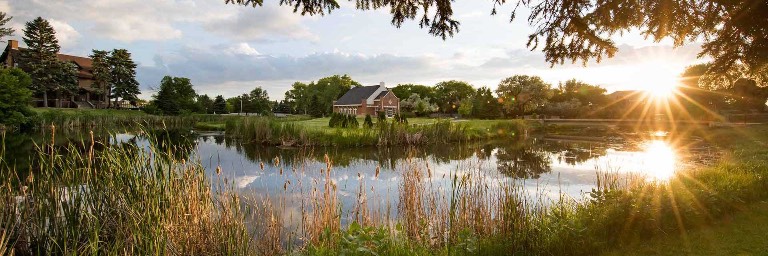Environmental Geoscience Major
Help an expanding population live on a finite Earth.
Human population is growing at a rapid rate today. Undesirable disruptions of natural systems have resulted from increasing demand for natural resources and places to live and work. Environmental geoscientists work to restore natural systems and solve problems before they occur. They also work to protect people from natural hazards including floods, landslides and other catastrophic events.
- Program type:
- Major
- Format:
- On Campus or Online
- Est. time to complete:
- 4 years
- Credit hours:
- 120
Why earn an environmental geoscience major?
Environmental Geoscience Major at UND
-
Gain access to extensive resources, including cutting-edge equipment at the Environmental Analytical Research Laboratory. It has electron microprobe and X-ray fluorescence equipment. It is largest geoscience laboratory in the upper Midwest.
-
Join student groups, including the Association of Undergraduate Geologists and Environmental Restoration club, for networking, field trips and more.
-
Small classes with outstanding instructors ensure engaging and successful learning.
-
Let our team of academic advisors help you plan your major. You'll also have access to personalized software to keep you on track to graduate in four years.
-
Raise your grades by getting free academic support at UND. We offer individual tutoring sessions, along with specialized writing and math support programs.
-
Get hired! At UND, you'll receive help perfecting your resume, practice interviewing, and learn effective job-hunting strategies.
What can I do with an environmental geoscience major?
Environmental Geoscience Major Courses
Environmental Geoscience Degree Online
Leaders that Do
Students use their skills to investigate the legendary bootleggers' tunnel in East Grand Forks, MN.
